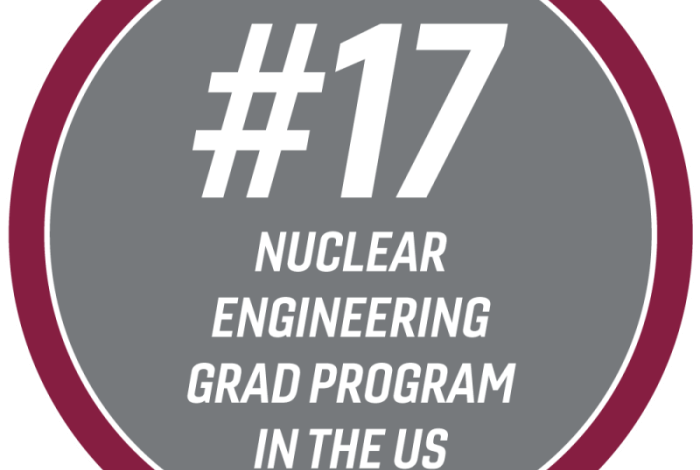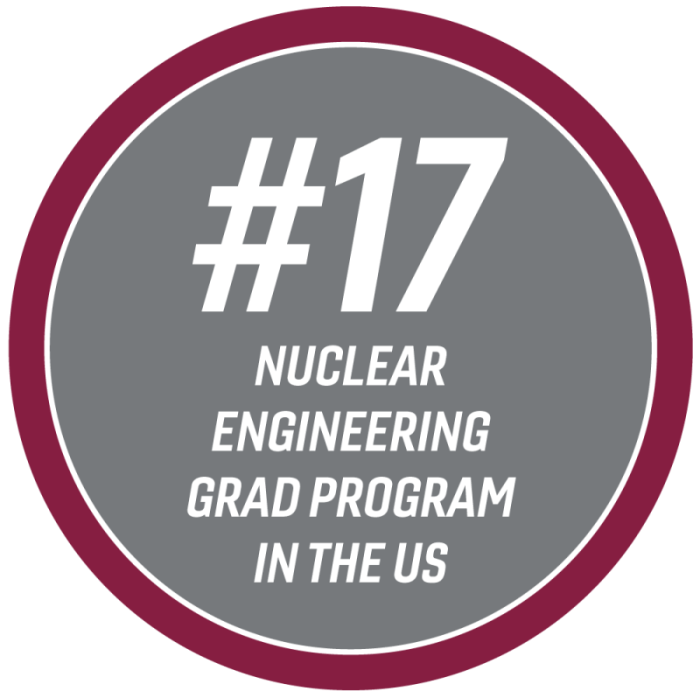
Getting a graduate job in nuclear energy is a rewarding path for those passionate about a dynamic and essential industry. This in-depth guide explores the current job market, necessary skills, application strategies, and future career prospects in this exciting field. From the essential technical skills to navigating the application process, we’ll equip you with the knowledge and insights needed to succeed.
The nuclear energy sector offers diverse career paths, ranging from research and development to operational roles. Understanding the required qualifications, application procedures, and the specific needs of employers is crucial for securing a position. We’ll delve into the technical and soft skills, highlighting the educational background and certifications valued in the field. A deep understanding of the industry’s current challenges and future opportunities will also be covered.
Job Market Overview
The nuclear energy sector presents a unique and dynamic job market for graduates, with a mix of established opportunities and emerging specializations. Understanding the current landscape, projected future trends, and geographic distribution is crucial for aspiring nuclear engineers and scientists. This overview will dissect the current job market, providing insight into the types of positions available, and their anticipated growth.
Current Job Market Landscape
The current job market for graduate-level nuclear energy positions is robust, particularly in areas experiencing plant modernization or new reactor construction. Demand exists for specialists in reactor operations, maintenance, safety engineering, and nuclear fuel cycle management. However, competition is often fierce, requiring strong academic records, practical experience, and demonstrable skills in relevant areas. Graduates with a combination of technical expertise and soft skills like communication and teamwork are often sought after.
Anticipated Future Trends
The nuclear energy sector is projected to experience significant growth in the coming years, driven by factors such as climate change mitigation efforts and the need for reliable energy sources. This expansion is expected to lead to increased job openings, particularly in countries actively pursuing nuclear power development, such as those in Asia and Europe. Areas like small modular reactors (SMRs) and advanced reactor designs are expected to generate further employment opportunities.
For example, the development of SMRs in the US and Canada has already prompted the creation of specialized roles in design, engineering, and construction.
Landing a graduate job in nuclear energy is seriously intense, requiring a strong foundation in physics and engineering. While the field offers exciting opportunities, it’s also worth considering the bigger picture, like the big questions surrounding Sony’s little gaming machine, like this one. Ultimately, the challenges of getting into this field are significant, but potentially very rewarding.
Geographical Distribution of Opportunities
The distribution of nuclear energy employment opportunities is geographically concentrated in regions with existing nuclear power plants or active development projects. Countries with substantial nuclear programs, like the US, France, and Japan, generally offer the highest concentration of graduate-level positions. However, countries actively developing their nuclear capacity, including those in Asia, are also showing considerable growth in this field.
| Location | Job Type | Projected Growth |
|---|---|---|
| United States | Reactor Operations, Maintenance, Safety Engineering | High |
| France | Nuclear Fuel Cycle Management, Reactor Design | Moderate |
| Japan | Reactor Maintenance, Safety Engineering, Research | Moderate |
| China | Reactor Construction, Operations, Fuel Cycle | High |
| South Korea | Reactor Operations, Maintenance, Engineering | Moderate |
| India | Reactor Design, Operations, Safety | High |
Required Skills and Qualifications
Landing a graduate-level nuclear energy job requires a blend of technical expertise, soft skills, and a strong educational foundation. This often involves a competitive application process, where candidates must showcase their aptitude and suitability for the specific role. A thorough understanding of the necessary skills and qualifications is crucial for success in this field.The nuclear energy sector demands individuals capable of handling complex systems and adhering to stringent safety regulations.
Therefore, strong analytical abilities, problem-solving skills, and the ability to work effectively within a team are paramount. The sector also values individuals who are highly motivated, detail-oriented, and committed to continuous learning.
Essential Technical Skills, Getting a graduate job in nuclear energy
The nuclear energy industry demands a deep understanding of various technical concepts. These include, but are not limited to, nuclear physics, reactor design, thermal-hydraulics, radiation safety, and control systems. A solid grasp of these principles is fundamental for analyzing complex systems, designing solutions, and ensuring safe operation. Proficiency in relevant software packages, such as those used for simulation and modeling, is also often expected.
Crucial Soft Skills
Success in nuclear energy roles hinges on a range of soft skills. Effective communication, both written and verbal, is essential for conveying complex information clearly and concisely. Strong teamwork skills are vital for collaborative problem-solving and decision-making within teams. Critical thinking and problem-solving skills are needed to analyze complex situations, identify potential issues, and develop effective solutions.
Furthermore, strong interpersonal skills, including the ability to build rapport with colleagues and stakeholders, are essential for successful collaboration.
Educational Background and Certifications
A strong academic foundation is a cornerstone of success in this sector. A bachelor’s degree in nuclear engineering, or a related field, is typically a minimum requirement. Advanced degrees, such as master’s or doctoral degrees, are often preferred, particularly for senior or research-oriented positions. Specific certifications, such as those offered by the American Nuclear Society (ANS), can enhance an applicant’s profile and demonstrate their commitment to professional development.
Comparison of Nuclear Engineering Specializations
| Specialization | Job Prospects | Description |
|---|---|---|
| Nuclear Reactor Design | High | Focuses on the design, analysis, and operation of nuclear power plants. High demand for qualified engineers to meet the needs of existing and future facilities. |
| Nuclear Fuel Cycle | Moderate | Involves the processing and management of nuclear fuel from mining to reprocessing. Opportunities exist in fuel fabrication, enrichment, and waste management. |
| Radiation Safety and Protection | Moderate-High | Concentrates on the safe handling and management of radiation sources. Critical for ensuring the safety of personnel and the environment in nuclear facilities. |
| Nuclear Instrumentation and Control | High | Focuses on the design, operation, and maintenance of instrumentation and control systems in nuclear facilities. Essential for monitoring and controlling reactor operations. |
Strong analytical abilities, problem-solving skills, and effective communication are essential for success in graduate-level nuclear energy jobs.
Application Process and Strategies

Landing a graduate-level nuclear energy job requires a strategic approach beyond simply submitting a resume. Understanding the nuances of the application process, crafting compelling materials, and preparing for rigorous interviews are crucial for success. This section delves into the specific steps and techniques needed to navigate this competitive landscape.
Common Application Procedures
The application process for graduate-level nuclear energy positions often involves multiple stages. Initial screening typically focuses on reviewing applications for adherence to minimum qualifications and experience requirements. Shortlisted candidates then proceed to more in-depth assessments, such as interviews, presentations, and possibly practical tests. Understanding the specific requirements of each stage is critical for tailoring your application materials.
Landing a graduate job in nuclear energy is seriously competitive, but it’s definitely achievable. It’s all about highlighting relevant skills and experience. Plus, understanding the industry’s current trends, like how Microsoft is reportedly trying to avoid “ghetto tech” (check out microsofts misunderstood avoid ghetto tech ), is key. Ultimately, a strong application and showcasing your passion for nuclear energy are crucial for success.
Crafting Effective Resumes and Cover Letters
A strong resume and cover letter are paramount in making a positive first impression. Highlighting relevant skills and experiences is key. Quantify achievements whenever possible, using metrics to demonstrate impact. For example, instead of stating “managed a project,” quantify the project’s success by saying “managed a project that reduced operational costs by 15%.” A well-written cover letter should showcase your enthusiasm for the specific role and company, connecting your skills to the employer’s needs.
Demonstrate your understanding of the nuclear energy sector and your long-term career goals. Tailor your resume and cover letter to each specific job application, focusing on the requirements Artikeld in the job description.
Preparing for Job Interviews
Effective interview preparation is vital for success in the nuclear energy sector. Researching the company and role thoroughly demonstrates genuine interest. Anticipate potential questions and formulate thoughtful responses. Practice answering common interview questions and prepare examples that illustrate your skills and experiences. Demonstrate your understanding of safety protocols, regulatory compliance, and technical aspects of nuclear energy.
Confidence and clear communication are key factors in a successful interview.
Common Interview Questions and Suggested Answers
| Question | Suggested Answer |
|---|---|
| Tell me about yourself. | Provide a concise overview of your background, highlighting relevant experiences and skills. Focus on how your qualifications align with the requirements of the role. Connect your interests and goals to the company’s mission. |
| Why are you interested in this role? | Demonstrate your understanding of the specific responsibilities and requirements of the position. Explain how your skills and experiences align with the job description. Emphasize your passion for nuclear energy and your long-term career aspirations. |
| What are your strengths and weaknesses? | Identify specific strengths that directly relate to the job requirements. For weaknesses, focus on areas where you are actively working to improve and illustrate how you have mitigated past challenges. |
| Why are you interested in nuclear energy? | Express genuine enthusiasm for the field. Highlight your understanding of the importance of nuclear energy in meeting global energy demands and your commitment to safety and sustainability. Mention specific aspects of nuclear technology that interest you. |
| Describe a time you faced a challenge and how you overcame it. | Present a situation where you faced a significant challenge, highlighting your problem-solving skills, resilience, and ability to overcome obstacles. Demonstrate the strategies you employed to reach a successful outcome. |
Career Paths and Advancement

Nuclear energy offers a diverse range of career paths for graduates, ranging from hands-on engineering roles to management and research positions. This field is experiencing significant growth, presenting excellent opportunities for professional development and advancement. Understanding the typical career progression and the various paths available is crucial for aspiring nuclear engineers.
Landing a grad job in nuclear energy is seriously tough, but hey, at least it’s not as crazy as the “honeycomb hysteria pad madness” that’s apparently gripping MWC right now. Honeycomb hysteria pad madness strikes mwc is a whole other level of weird, but the hunt for a nuclear engineering gig is still a pretty intense challenge.
Finding the right fit remains the ultimate goal, no matter the weirdness of the tech world.
Potential Career Paths for Graduates
Graduates in nuclear energy can pursue diverse career paths, each offering unique challenges and rewards. These paths often begin with entry-level roles, progressing to more specialized and senior positions with increasing responsibilities and expertise. A few examples include reactor operations, design engineering, and research and development.
- Reactor Operations: This path involves monitoring and controlling nuclear reactors, ensuring safe and efficient operation. Operators play a critical role in maintaining reactor safety systems and adherence to regulatory guidelines. Training and certification are essential for this role, often requiring extensive hands-on experience and practical knowledge of reactor physics and engineering principles.
- Design Engineering: Design engineers focus on developing and improving nuclear reactor designs, components, and safety systems. They use their engineering skills to optimize performance, safety, and cost-effectiveness of reactor designs. This often involves close collaboration with other engineering disciplines and regulatory bodies.
- Research and Development: This path involves innovation and the development of new nuclear technologies. Researchers work on areas like advanced reactor concepts, nuclear fuel cycles, and radiation shielding, often contributing to breakthroughs in the field. Advanced degrees are often necessary for roles in research and development.
- Management and Leadership: This path encompasses project management, strategic planning, and leadership roles within nuclear power plants or research institutions. Graduates with strong leadership skills and experience can advance into managerial positions with responsibilities that include team supervision, budget management, and project execution.
- Regulatory Affairs: This path involves ensuring compliance with safety regulations and standards in the nuclear industry. Professionals in this area often work for regulatory bodies or within nuclear facilities to maintain compliance with industry standards.
Professional Growth and Advancement
Professional growth in nuclear energy is closely tied to experience, education, and continuous learning. Demonstrating expertise, taking on additional responsibilities, and pursuing advanced degrees or certifications are essential for career advancement. Dedication to continuous professional development and a proactive approach to learning are highly valued.
Typical Progression from Entry-Level to Senior-Level
The typical progression from entry-level to senior-level positions in nuclear energy often involves several key steps.
- Entry-Level Positions: These roles include junior engineer or technician positions requiring a strong foundational understanding of nuclear principles and engineering practices. Successful completion of required training programs and certifications is crucial for advancement.
- Mid-Level Positions: Mid-level roles involve more complex tasks and responsibilities, such as leading smaller projects or teams. Experience and specialized knowledge are essential for promotion to these positions. Demonstrating proficiency in technical skills and leadership qualities are significant factors for consideration.
- Senior-Level Positions: Senior positions involve leading and managing large-scale projects, overseeing teams, and making strategic decisions. Extensive experience, advanced degrees, and strong leadership abilities are typically required for senior roles. Examples of senior roles include project managers, department heads, and plant managers.
Illustrative Career Path Flowchart
(A flowchart depicting a typical career path in nuclear energy would be presented here, if allowed, but is omitted in this text-only format. The flowchart would show the interconnectedness of entry-level positions (e.g., Reactor Operator Trainee), progressing through mid-level roles (e.g., Reactor Operator), and eventually to senior positions (e.g., Reactor Shift Supervisor) with various paths leading to specialized areas like Research or Management.
Each step would be accompanied by required qualifications and experience.)
Networking and Mentorship
Securing a graduate job in the competitive nuclear energy sector requires more than just a strong application. Building a robust professional network and seeking mentorship is crucial for navigating the industry landscape and achieving career success. This aspect of job hunting often gets overlooked, but it can significantly impact your chances of landing a coveted position.Effective networking and mentorship go beyond simply making connections.
They provide valuable insights into industry trends, potential career paths, and crucial skills needed to excel in this field. This section delves into the importance of networking and mentorship, offering strategies for building connections and leveraging the guidance of experienced professionals.
Importance of Networking
Networking within the nuclear energy industry is paramount. It allows you to connect with potential employers, learn about open positions, and gain insights into the realities of working in the sector. Access to industry experts and professionals provides a unique opportunity to learn best practices, anticipate industry challenges, and gain a comprehensive understanding of the field.
Strategies for Building Professional Networks
Building a professional network is an ongoing process. Actively participate in industry events and conferences. Attend seminars, workshops, and webinars to expand your knowledge and meet potential mentors and colleagues. Leveraging online platforms like LinkedIn can significantly enhance your network. Use it to connect with professionals, join relevant groups, and showcase your expertise.
Networking Events and Platforms
Numerous networking events and online platforms provide opportunities to connect with professionals in the nuclear energy industry. Industry conferences and trade shows offer chances to meet recruiters, learn about new technologies, and make valuable contacts. Online platforms such as LinkedIn and specialized nuclear energy forums can facilitate discussions and networking opportunities.
Mentorship in Career Development
Mentorship plays a critical role in career development for nuclear energy professionals. Experienced mentors provide guidance, support, and insight into navigating the challenges and complexities of the industry. Mentorship can help you develop essential skills, refine your career path, and gain valuable industry knowledge. This support can significantly influence your career trajectory.
Finding Mentors
Identifying potential mentors is a key step in leveraging mentorship opportunities. Look for professionals with experience in areas you are interested in. Reach out to individuals who have demonstrated success and expertise in the nuclear energy sector. Attend industry events and conferences, and actively seek out individuals who could potentially provide valuable insights and guidance.
Leveraging Mentorship
Effectively utilizing a mentor relationship requires proactive engagement. Establish clear communication and regularly seek feedback. Ask insightful questions, and demonstrate a genuine interest in their knowledge and experience. Actively participate in discussions, and actively seek advice on relevant issues. Utilize their insights to navigate career challenges and achieve your professional goals.
Regulatory and Safety Considerations
Navigating the nuclear energy sector requires a deep understanding of the stringent regulatory frameworks and safety protocols that govern this industry. A commitment to safety is paramount, not just for ethical reasons, but also for ensuring job security and the long-term viability of nuclear power as a sustainable energy source. Understanding these regulations is crucial for aspiring professionals to demonstrate a commitment to safety and reliability.The nuclear energy industry is highly regulated due to the inherent risks associated with handling radioactive materials and the potential for large-scale accidents.
These regulations aim to prevent accidents, mitigate their impact, and ensure public safety. Compliance with these regulations is essential for maintaining licenses, operating facilities, and ultimately, maintaining a successful career in the field.
Regulatory Frameworks
Nuclear energy is governed by a complex web of national and international regulations. These regulations are designed to ensure the safe handling, storage, and disposal of radioactive materials, as well as the operation of nuclear facilities. Different countries have unique regulatory bodies that oversee the implementation and enforcement of these standards. For example, in the United States, the Nuclear Regulatory Commission (NRC) plays a crucial role in setting and enforcing safety standards for nuclear power plants.
International organizations, such as the IAEA (International Atomic Energy Agency), establish global benchmarks and guidelines. These frameworks are continuously evolving to address emerging challenges and enhance safety protocols.
Safety Protocols and Procedures
Safety protocols are integral to the nuclear energy industry, underpinning all aspects of facility operations and worker training. These procedures cover everything from the handling of radioactive materials to emergency response plans. Rigorous training programs are mandatory for all personnel to ensure they are equipped with the necessary knowledge and skills to respond effectively to potential hazards. Detailed safety assessments and audits are routinely conducted to identify and mitigate potential risks.
- Emergency Response Procedures: These protocols detail actions to be taken in case of accidents or emergencies, ranging from minor incidents to large-scale accidents. Effective emergency response is crucial in minimizing the impact of any event. Well-rehearsed procedures, coupled with dedicated resources and trained personnel, are essential to ensure a swift and effective response.
- Radiation Protection Measures: Robust radiation protection measures are implemented to minimize worker and public exposure to radiation. These measures include shielding, personal protective equipment (PPE), and monitoring protocols. Adherence to these measures is critical for maintaining worker health and preventing long-term health effects.
- Waste Management Practices: Safe and secure management of radioactive waste is a critical aspect of nuclear energy. These practices cover the handling, storage, and eventual disposal of spent fuel and other radioactive materials. The industry faces significant challenges in ensuring the long-term safety and security of these materials.
Importance of Adherence to Safety Regulations
Adherence to safety regulations and standards is not merely a matter of compliance; it is a fundamental aspect of responsible nuclear energy development. It safeguards workers, protects the public, and prevents potential environmental damage. Failure to adhere to these regulations can lead to serious consequences, including severe accidents, reputational damage, and legal repercussions. A strong safety culture within organizations is essential for fostering a mindset that prioritizes safety above all else.
Potential Impact of Safety Regulations on Job Prospects
Strong adherence to safety regulations can significantly impact job prospects in the nuclear energy sector. Prospective employers value candidates who demonstrate a commitment to safety and a thorough understanding of regulatory frameworks. A robust understanding of safety protocols and procedures, along with experience in complying with safety regulations, is often a crucial factor in recruitment decisions. Candidates with a proven track record of maintaining high safety standards are often prioritized.
Financial Aspects of Nuclear Careers
Nuclear energy, while crucial for a sustainable future, also presents a compelling financial landscape for aspiring professionals. Understanding the salary expectations, benefits packages, and financial considerations specific to this field is vital for informed career planning. This section dives into the financial realities of pursuing a nuclear career, comparing compensation across regions and providing insights for navigating the financial aspects of this exciting field.
Salary Ranges for Graduate-Level Nuclear Jobs
Graduate-level nuclear energy positions typically offer competitive salaries, reflecting the specialized training and skills required. Entry-level roles in reactor operations, engineering, or safety analysis often fall within a range of $60,000 to $80,000 annually. More senior positions, like project management or research roles, command higher salaries, potentially exceeding $100,000 or more, depending on experience and specific responsibilities. Factors such as location, company size, and the candidate’s specific qualifications will influence the exact salary offered.
Benefits Packages in the Nuclear Sector
Companies in the nuclear energy sector typically offer comprehensive benefits packages to attract and retain top talent. These packages often include health insurance, retirement plans (401k or pension), paid time off, and life insurance. Some companies also provide additional perks, such as professional development opportunities, tuition reimbursement, and employee assistance programs. These benefits contribute significantly to the overall financial well-being of employees.
Financial Considerations for Aspiring Professionals
Aspiring nuclear professionals should consider the potential costs associated with education and training, especially for advanced degrees. Nuclear engineering programs can be expensive, and securing funding through scholarships, grants, or student loans may be necessary. Furthermore, relocation costs, particularly for jobs in remote locations or specific regions, should be factored into the financial planning process.
Geographic Compensation Comparisons
The cost of living significantly impacts compensation levels in different geographic regions. For example, roles in areas with high living costs, such as major metropolitan areas on the US East Coast, often come with higher salaries to compensate for the increased expenses. Conversely, jobs in more rural or less expensive regions may offer slightly lower salaries. Aspiring professionals should research the cost of living in the regions where they are interested in working to make informed decisions.
Comparing compensation data from similar roles in different locations can provide valuable insights.
| Region | Typical Salary Range (USD) | Cost of Living (Index) |
|---|---|---|
| Northeast US | $75,000 – $110,000 | High |
| Midwest US | $65,000 – $95,000 | Moderate |
| Western US | $70,000 – $105,000 | High (varies by location) |
Epilogue: Getting A Graduate Job In Nuclear Energy
In conclusion, securing a graduate job in nuclear energy requires a multifaceted approach. Understanding the current job market, developing the necessary skills, and effectively navigating the application process are vital steps. This guide has provided a comprehensive overview of the key aspects involved, from the technical and soft skills to the financial considerations and regulatory frameworks. The exciting opportunities and potential for professional growth in this field make it a compelling choice for ambitious graduates.
With the right preparation and strategic approach, a successful career in nuclear energy is well within reach.






